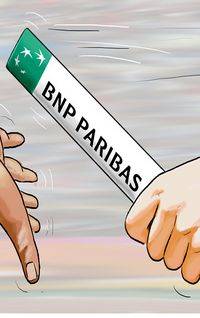Slam dunk
Imagine getting the opportunity to buy your beloved home-town sports team – but only having two months to come up with the US$2.2bn to make it happen.
That was the situation billionaire Tilman Fertitta found himself in when the Houston Rockets came up for sale this year. Fertitta, owner of the Landry’s restaurant empire and the Golden Nugget chain of hotels and casinos, had to put down a non-refundable US$100m deposit – and then had just 60 days to pull the rest of the financing together.
“It was a dream come true,” Fertitta told IFR. “The one thing I never thought I was going to do is own a sports team in my home town.”
The solution, engineered by bankers at Jefferies, came via one of the largest dividend recapitalisations ever executed in the US market for an individual shareholder.
In a complex reorganisation, Landry’s was combined with Golden Nugget, while restaurants Fertitta had just bought out of bankruptcy were added to the combined entity.
That created enough room under some of the existing debt’s covenants to raise almost US$2.5bn in bonds and loans. The deal gave Fertitta a US$1.65bn dividend that he could use to buy the team.
Dividend recaps are typically a tough sell for investors – even when conditions are favourable.
After maximising the amount that could be raised through loans – just under US$1.1bn – the structuring of the bond issue required a careful balancing act.
Raising the entire US$1.415bn on a senior unsecured basis would have been likely to alienate holders of Landry’s existing 6.75% 2024s, which had been issued just a year before.
“We didn’t take all his junior capital providers and take them deeper into the structure,” said Joseph Kieffer, US head of leveraged finance capital markets at Jefferies.
The bank opted to raise US$745m through a reopening of the 2024s – bringing leverage on those notes only up to where it was when they were issued in 2016. A subordinated tranche maturing in 2025 took care of the remaining US$670m.
The tap cleared the market at a yield of 6.931%, while the subordinated notes were priced at 8.75%.
Total leverage increased by around a full turn to 6.5 times as a result.
The banks provided no backstop for the financing, which had yet to be completed when Fertitta signed a binding agreement to purchase the Rockets – and put down his chunky deposit.
Adding to the difficulty level, Hurricane Harvey struck the Houston area just before the debt sale was launched; Hurricane Irma stormed through Florida during syndication.
Fertitta’s Plan B if the financing didn’t come together?
“We don’t wanna go there,” he said with a laugh.
To see the digital version of this review, please click here.
To purchase printed copies or a PDF of this review, please email gloria.balbastro@tr.com.


